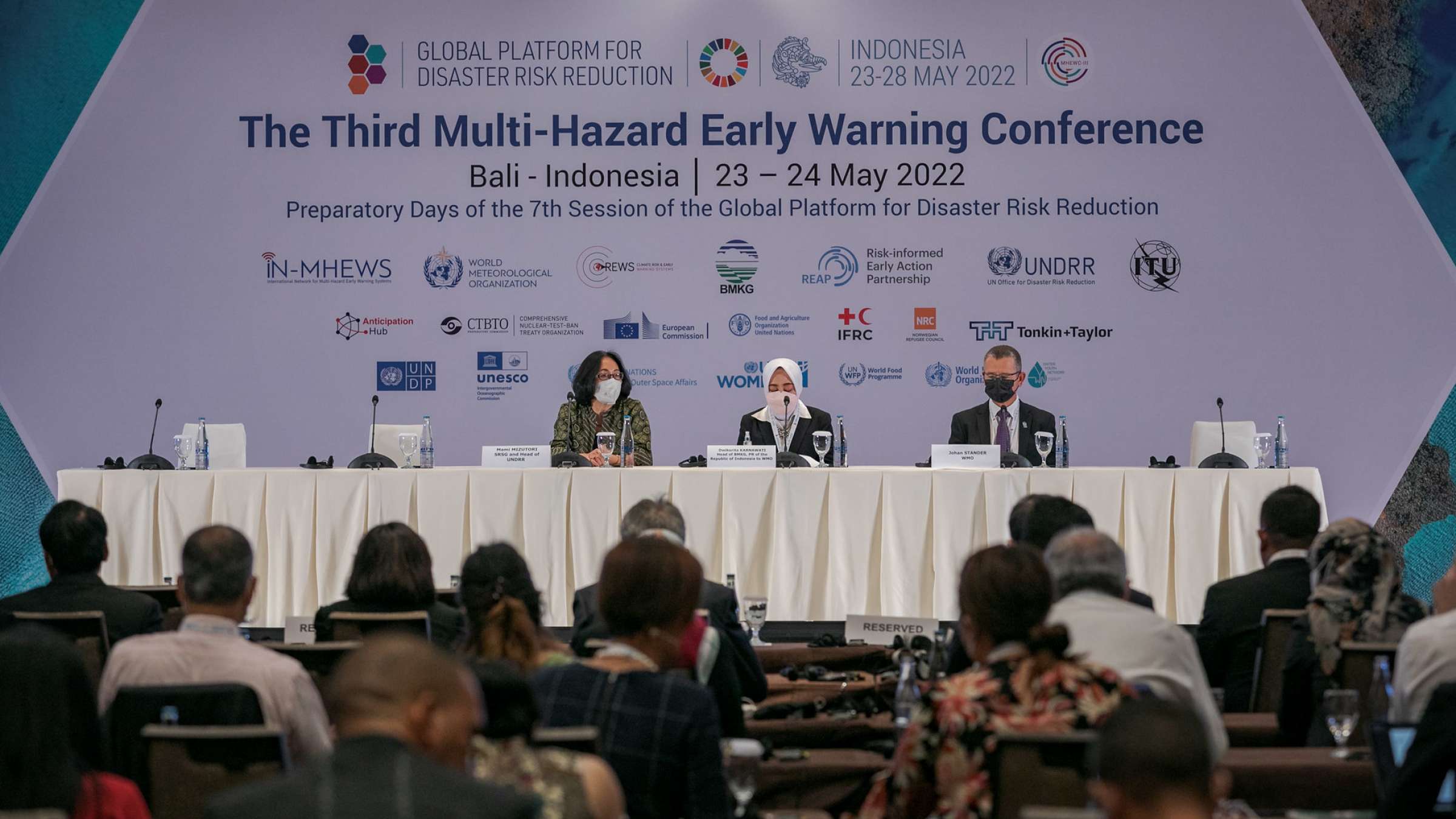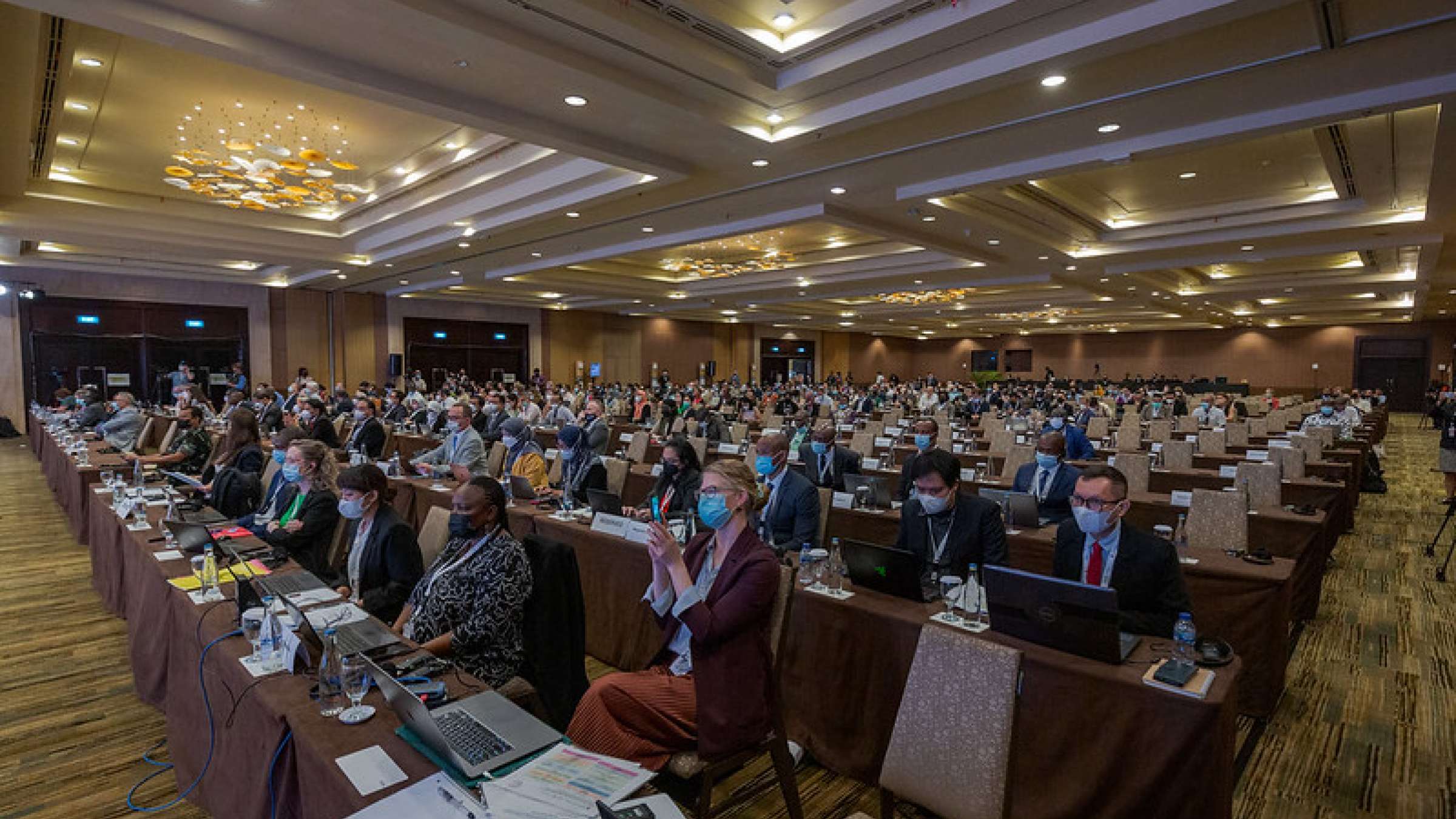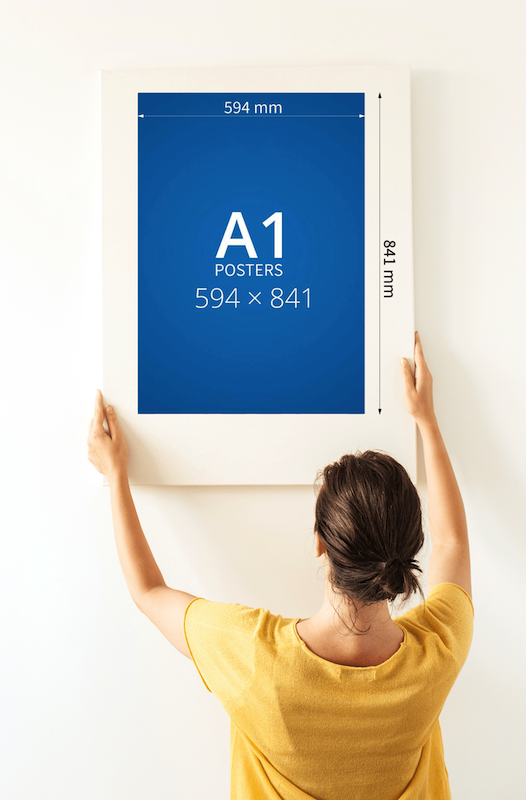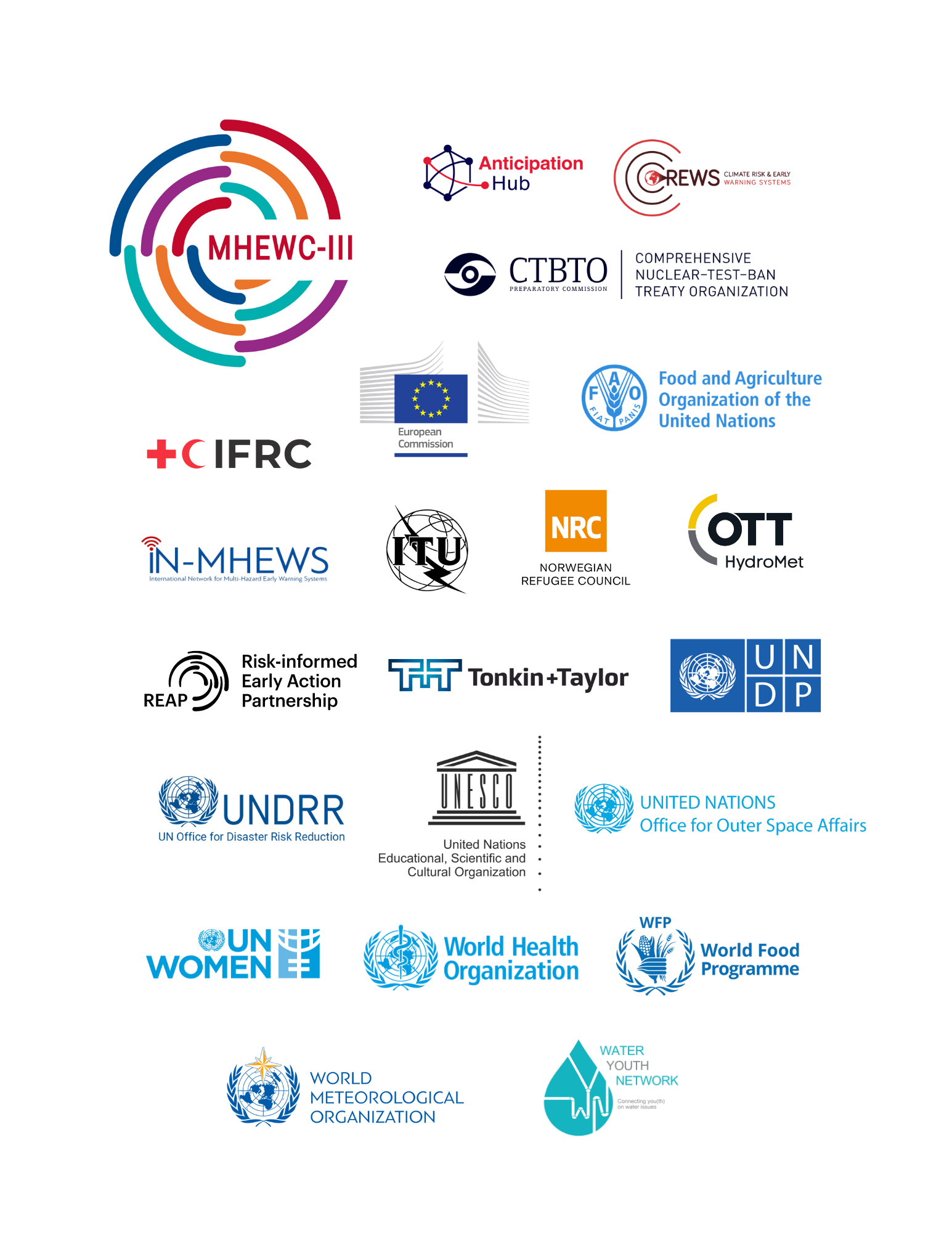MHEWC-III
The Third Multi-Hazard Early Warning Conference
From Stock Take to Scaling Actions on Target G: Accelerating the
Knowledge and Practice of Early Warning Systems for
Risk Informed Resilience.
23-24 May, 2022
Held at the Bali International Convention Centre (BICC)
Watch the YouTube livestreams for Day 1 and Day 2
SENDAI FRAMEWORK MID-POINT
A preparatory event of the GP2022 organized by the International Network for Multi-Hazard Early Warning Systems (IN-MHEWS)
As we approach the mid-point of the Sendai Framework for Disaster Risk Reduction, MHEWC-III provided a unique opportunity to review key accomplishments, share skills, experience, and expertise within an active network of early warning practitioners.
The Conference has:
- ‘Taken stock’ of progress in the implementation of Target G of the Sendai Framework and reported on latest trends in MHEWS design and results.
- Identified gaps and challenges in practice, policy and science to be addressed in future work.
- Shared knowledge, lessons learned, and emerging examples of good practices.
- Initiated commitments for scaling-up action on early warnings and promote synergies and partnerships
The MHEWC-I: Saving Lives, Reducing Losses took place 22-23 May, 2017 in Cancún, Mexico, as a pre-event to the Fifth Session of the GPDRR (GP2017). The MHEWC-II took place in Geneva, Switzerland 13-14 May, 2019 as a pre-event to the Sixth Session of the GPDRR (GP2019). The MHEWC-III built on the progress and achievements of the first two conferences.

The Expected Outputs of the MHEWC-III include the following:
- Outcome statement to feed into GP2022 thematic session on early warnings and early action that puts forward recommendations to enable transformation for MHEWS enabling risk-informed early action to reduce impacts and losses
- Roadmap/Agenda with strategic priorities, governance arrangements and a joint work program for IN-MHEWS with updates and voluntary commitments by partners
- Contribution to a stock take on progress in the implementation of Sendai Framework target G
- Dissemination of methodologies and frameworks for assessing effectiveness of EWS/Target G custom indicators
- Contribute to a validated Words into Action guide on Multi-Hazard Early Warning Systems
The MHEWC-III is now finished. All final posters can be viewed here. Other Outcomes will be updated here.



